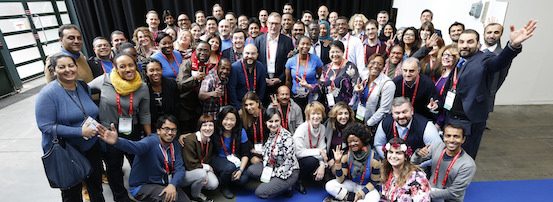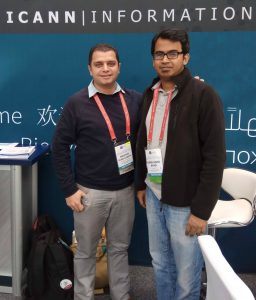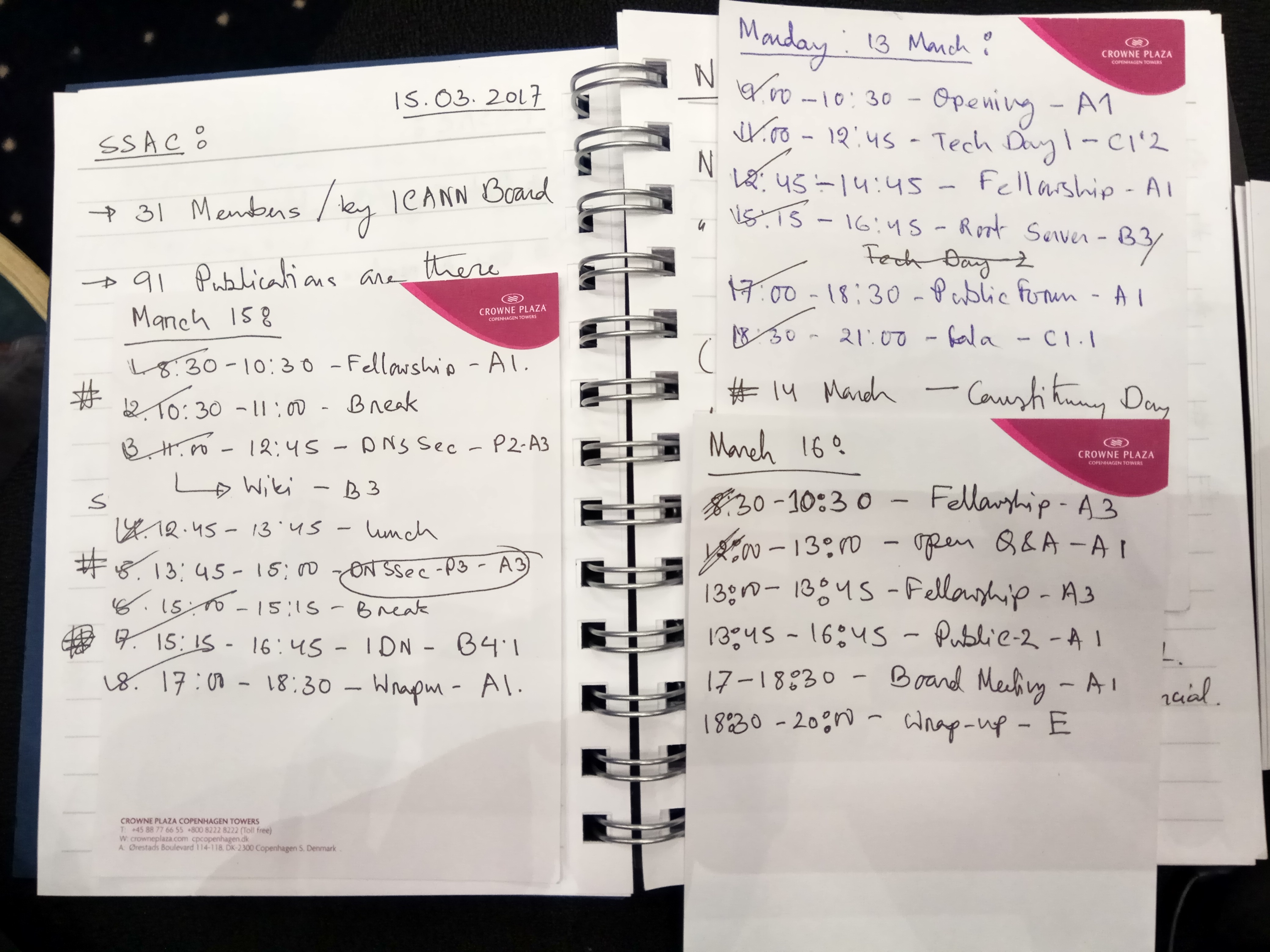
What do you think of when you think about the Internet?
Having worked as a network engineer in Bangladesh for over 12 years, I used to think of terms such as IP address, routing, BGP and OSPF, because for me these are the primary factors behind the workings of the Internet. That was until I heard about ICANN and attended one of their massive meetings.
First impressions of ICANN
I first heard about ICANN in 2012, when attending a network operator conference. My first impression was that ICANN was a company who monitors domains under the US Government’s supervision.
I then heard about it again at the APRICOT 2013 conference in Singapore, at which I met Fadi Chehadé, ICANN’s CEO at the time, and was blown away by his amazing speech. He promised that within a few years, the Internet would be governed by the community – which happened in October 2016 with the successful transition of the IANA functions.
Following this encounter, I became interested in ICANN and the multistakeholder governance model that underpins it. As I’d come to learn, the Internet is not controlled by a single government, company, operator or organization; it is operated by different people from different communities who work together to build and maintain it.
Attending ICANN’s meeting
I was one of 56 lucky fellows who were chosen to attend the recent ICANN 58 conference in Denmark. If you haven’t been to an ICANN conference, the first thing you’ll come to realize is how massive they are – more than 300 sessions took place across the five days.
It was daunting trying to figure out what sessions I should focus on, until I was contacted by my assigned fellow coach Mauricio Oviedo from Costa Rica. He provided me and others in our group with some context on what to expect, and set us learning tasks.
Another important person in my ICANN 58 journey was fellow coordinator Siranush, who was like the mother of the fellows. She told us what to do, what not to do, and helped us identify what our goal was for the conference.
Although I learned a lot from my experience (see below my key learning experiences) the main achievement for any fellow is meeting the “best of the best” of the industry. It’s very difficult to get these people under a single roof, and make them accessible to people like me, from a developing country, who can talk to and share cards with them. For this, I’m most grateful to ICANN and look forward to reacquainting with them at future ICANN events.
Key learning experiences
As a fellow, our whole five days were full of tutorials, social events and, of course, ICANN sessions. Below is a list of some of the key learning experiences I had and am looking forward to sharing with my community in Bangladesh.
- Multistakeholder model
A few years ago, there were many people arguing that the multistakeholder model doesn’t work. After attending ICANN58, I can attest that it really does work. This model gives us a clear indication of how good governance can be attained in the digital world, where information is open.
The conference highlighted that ICANN does these two things very well. The CEO’s report to the Board of Directors is made public and the Public Forum allows anyone from the community to ask anything of the Board, who is bound to give them an answer.
- Community approach to decisions
Boards often have the power to do anything. But in ICANN, I found the real power lay with the community. Any member of the community can approach the Board with a new policy proposal, which once finalized and accepted by the community, the Board publish and apply it.
The community welcomes fresh ideas
During the fellowship welcoming, Vanda Scartezini said “Fresh blood brings new ideas. The Internet is evolving every day, that’s why ICANN needs more fresh and energetic young minds to take care of the next arena.” Nigel Hickson added that newcomers are here because “we (newcomers) care for the Internet, we want openness of Internet as we want to connect to those who are not connected, and give benefits to them the way we are receiving such benefits.”
ICANN’s fellowship program is unique:
There are so many fellowship programs running in different NOGs and technical events around the world. But ICANN’s fellowship program is unique. I found through this fellowship program there is a linkage between all the fellows and the social interaction is great – there is a true borderless relationship with all the fellows, which keeps the bond strong even after the event.
There are so many alumni who now have roles at ICANN, IETF, ISC and many leading organizations and still love to say that they were a fellow at an ICANN event.
Simon Baroi is the Assistant General Manager of Fiber@Home.
The views expressed by the authors of this blog are their own and do not necessarily reflect the views of APNIC. Please note a Code of Conduct applies to this blog.



Great article Simon. Really captures the week!
You can find mine @
https://labs.ripe.net/Members/alastair_strachan/my-experiences-as-an-icann-fellow
Good job simon. Impressive writing, surely this will motivate many freshers…..Carry on ….